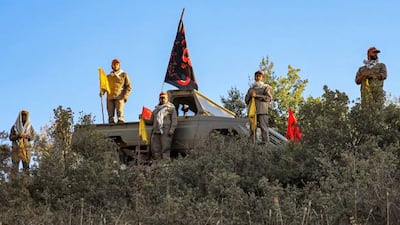In the past three years since Lebanon’s financial collapse, almost nothing has been done by the country’s political class to remedy the situation. None of the International Monetary Fund (IMF) reforms have been implemented (except indirectly), and almost nobody believes the politicians will reverse this in the foreseeable future.
That’s not to say the country’s finances and the economy haven’t changed. Economic realities, particularly dwindling foreign currency reserves, have forced the state to cut back on most subsidies. The mass departure of civil servants from the public administration due to the radical depreciation of the Lebanese pound has effectively led to an administrative purge. And the collapse of the pound, which has lost 96 per cent of its value since November 2019, has reduced the value of the domestic debt.
However, the politicians’ indolence has led to enormous suffering, pushing the World Bank to describe the economic situation as a “deliberate depression”. Yet until now, there has been no accountability for those responsible. In last May's elections, leading politicians and their allies were re-elected to parliament, as many voters returned those who had robbed them.
As it observes the situation, how might Hezbollah react? The question has more than academic value since the party has been on a sharp learning curve in the past six years. In 2016, it imposed Michel Aoun as president and essentially took control of most of the major posts in the state. The president was an ally, as was the speaker of parliament, while the prime minister was largely circumscribed by Hezbollah and its allies in the government.
Yet this enhanced control did the party little good. The financial crises and Mr Aoun’s catastrophic presidency showed Hezbollah the risks of supporting one side against the other in a divided and volatile country. By the end of the president’s term, Hezbollah was looking for a way to avoid being blamed for the deteriorating situation, which is why it has not backed Mr Aoun’s son in law, Gebran Bassil, to succeed him.

However, beyond that, does Hezbollah need to plan for a more transformative period ahead in the country? That may sound like an odd question when Lebanon appears immune to change. Yet the party cannot be indifferent to the current uprising in Iran, which has shown a fundamental rift between the country’s leadership and a significant part of Iranian society. Even if the authorities reimpose order, many observers believe the system will have to change to survive.
Hezbollah has also learnt that the Lebanese sectarian system can be treacherous. Last year alone, the party and its allies found themselves caught up in three sectarian incidents – with the Sunnis, Druze, and Christians – any one of which could have had serious repercussions not only for internal stability, but also on Hezbollah’s relations with other communities.
In this context, might Hezbollah try to secure its role in Lebanon by placing it on a stronger footing? Might this imply concessions on its part? The sceptics say no, and they may well be right. Hezbollah will not budge on any of its principles – retaining its weapons, the alliance with Iran, and the need to control the commanding heights of the state – until it is forced to. However, it’s equally conceivable that by that time things may be too late.
Some of the things to watch for in the near future will help us to better assess how Hezbollah views the future. The refusal to endorse Mr Bassil has already shown the party doesn't want to be burned again by imposing a president. However, Hezbollah is widely understood to back Suleiman Franjieh today, but has not ruled out other candidates, including the army commander Joseph Aoun, who enjoys wider national and international support.
It will be interesting to see if Hezbollah would be willing to go so far as to support Joseph Aoun’s election, if Mr Franjieh fails to get enough votes. If it does, it would be a calculated risk. The army commander’s election would be a sign to other parts of the region that the party is willing to compromise over a candidate. At the same time, it remains evident that no president, no matter how popular, could govern against Hezbollah. That reality may make the party more amenable to Joseph Aoun.
Second, might the party support an IMF plan for Lebanon? Most people assume there is nothing Hezbollah would like less. However, in an interview with Reuters last June, the party’s deputy secretary general was more ambiguous, saying that financial recovery was a priority, and that an IMF deal was a “necessary bridge” towards other funding.
A third sign to watch out for is how Hezbollah deals with other Arab states. Until recently, it had reacted with hostility to whatever these states did. However, there have been signs lately that Hezbollah may seek a compromise with Saudi Arabia. Most recently, this involved having a journalist with ties to Hezbollah proposing a presidential quid pro quo, whereby the president would be close to the party and the prime minister close to Riyadh.
There are contradictory reports on the Saudi reaction. Some argue the Saudis have rejected this idea, while others are saying they may be willing to consider it. Whatever the truth, the fact that the idea was floated shows Hezbollah may be altering its attitude.
It’s best not to be over-optimistic about the party's flexibility. However, facing real challenges inside Lebanon and in the region, Hezbollah may wonder about whether it can sustain its current ascendency indefinitely, or whether change is needed. The coming weeks will tell us if that is indeed the case, or whether Hezbollah sees no need to loosen its grip.


